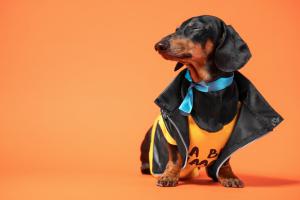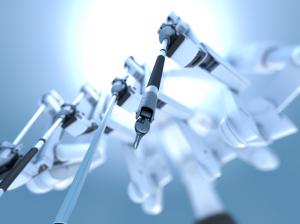Dr. David Samadi discusses dog’s potential to sniff out Prostate Cancer and carriers of COVID-19
Dogs have been very effective due to their sensitive olfactory nerve to detect Prostate Cancer, Ovarian Cancer and now Covid-19
Dogs may be the solution to a better detection of Covid-19. In the past they have used their sensitive olfactory nerves to detect prostate cancer, could this be the solution to end this pandemic?”
NEW YORK, NEW YORK, UNITED STATES, May 20, 2020 /EINPresswire.com/ -- Man’s best friend may soon be man’s best bet for detecting COVID-19, according to researchers. A program at the Penn Vet Working Dog Center in Pennsylvania, will be working with dogs in a laboratory setting trained to smell and find COVID-19 in saliva and urine samples from infected patients. — Dr. David Samadi
“The remarkable thing about dogs is they have an incredible sense of smell,” exclaimed Dr. David Samadi, Director of Men’s Health and Urologic Oncology at St. Francis Hospital in Roslyn, New York. “Dogs possess up to 300 million olfactory receptors in their noses, while humans have a mere 6 million olfactory receptors. Since the 1980’s, dog’s keen sense of smell has been used to sniff out many types of cancer, including my specialty, prostate cancer. Dogs have been trained to detect cancerous prostate cells from noncancerous cells by smelling a man’s urine with a sensitivity and specificity of 91 percent. An Italian study found 98 percent accuracy in dogs smelling for prostate cancer in urine. For other cancers such as lung cancer, a dog can detect it from a person’s breath whereas ovarian cancer, dogs can smell it from blood samples.”
Dr. Samadi went on to explain, “Cancerous cells release what is called volatile organic compounds (VOCs) that have unique distinctive odors that are found in a person’s blood, saliva, urine, and breath. Because of dog’s acutely innate ability to be trained learning to detect specific smells, this has been a low-risk and noninvasive method for detecting cancers and now looks to have the same potential for detecting COVID-19.”
To train a dog for learning detection of smells to spot, most dogs can be trained in about six months. The dogs at the Penn Vet program will be trained to recognize the unique smell of COVID-19 using a technique known as odor imprinting. Once the dogs have learned the specific smell of the virus, they will be tested on being able to differentiate between saliva and urine samples from people with the infection and from those who are not infected.
“This capability could help revolutionize our response to COVID-19 with the possibility of being a method to screen large groups of people,” said Dr. Samadi. “It could help speed up the process of finding asymptomatic people who have the infection. Currently, we are mainly testing people who are symptomatic such as having a fever or cough. But there will also be those who are infected with the virus but with very minor or have no symptoms. This is where dogs trained to sniff out people infected with COVID-19, displaying symptoms or not, could be a game-changer. Depending on results of the Penn Vet study, further follow-up with a viral test may be required to verify the dog’s accuracy.”
Dr Samadi went on to add, “I could see this type of testing being extremely useful in large gatherings of people, such as monitoring travelers coming in and out of the country at airports and who may be potentially infected. If we can utilize man’s best friend’s unique skills to help find asymptomatic individuals infected with COVID-19, I think it’s a good idea. This could be a low-cost means of stopping the unintentional community spread of this virus, helping save lives and getting our country back to normal.”
Dr. David Samadi is the Director of Men’s Health and Urologic Oncology at St. Francis Hospital in Long Island. He’s a renowned and highly successful board certified Urologic Oncologist Expert and Robotic Surgeon in New York City, regarded as one of the leading prostate surgeons in the U.S., with a vast expertise in prostate cancer treatment and Robotic-Assisted Laparoscopic Prostatectomy. Visit Dr. Samadi’s websites at robotic oncology and prostate cancer 911.
Dr. David Samadi, M.D.
roboticoncology
+1 2123655000
email us here
Visit us on social media:
Facebook
Twitter
LinkedIn
screening for prostate cancer, knowing your PSA from Dr. David Samadi


